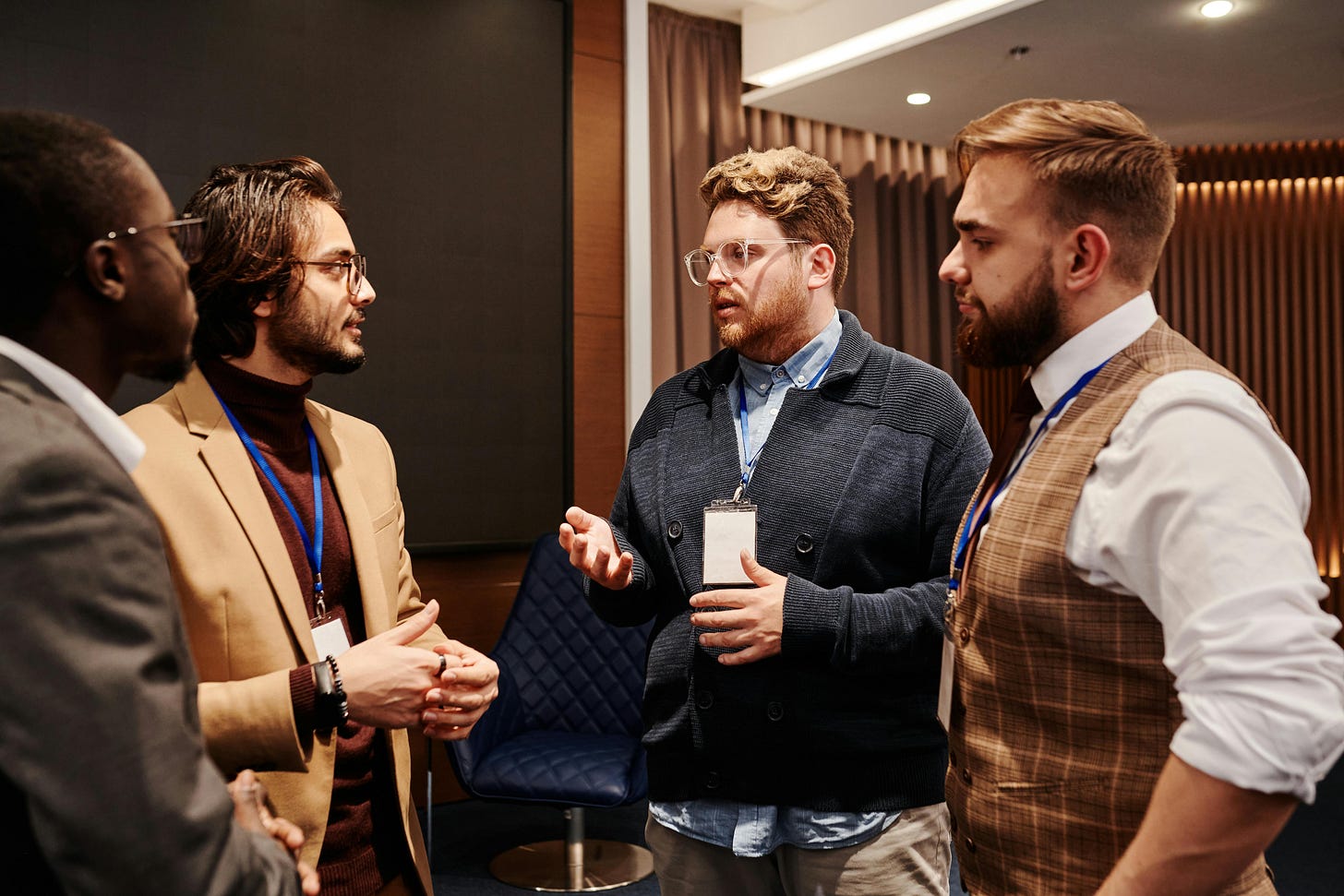The anti-embellishment advantage in my employment story
The surprising benefits of mundane honesty
Here is a typical conversation that occurs between me and a new contact at networking events:
New contact: "So, what made you decide to go into retail and consumer packaged goods?"
Me: "Oh, I was laid off and looking for a job, and I just happened to find one in this industry. I didn't have some grand design or particular interest in retail or CPG."

I hold this conversation a lot at networking events. People ask me about my job, and it is entirely reasonable for them to wonder why I chose to work in this industry. When they find out that my rationale was more about finding a job than choosing this specific industry, they laugh - perhaps out of appreciation for my honest and mundane answer1.
What happens afterward is interesting: People seem to listen to me more attentively and take what I say more seriously; it is as if my mundane answer "woke them up” from a routine networking interaction. I also work hard in advance to prepare my elevator pitch about myself and quickly tell people the captivating parts about my job and newsletter. My polished delivery certainly creates a positive impression and stimulates more discussion.
If you don’t hold a fancy job title or work on some cutting-edge technology (like generative artificial intelligence), you may feel tempted to embellish the narrative about your career when talking to strangers. Based on my experience, I can confidently attest that this embellishment is not necessary. (I also just don’t like to lie about myself.) What truly impresses strangers is good, valuable work - and communicating it in a clear and concise way for them to understand.
It’s OK that I did not have some grand design or special strength in consumer packaged goods. I was unemployed, I needed a job, and I happened to find one in this industry. What matters now is how I add value to my clients in this role. I like my job, and I can tell strangers about it in a compelling and substantive way - without any embellishment.
Some people may fabricate answers that paint themselves in a noble, innovative, or intelligent light. I cannot be sure of this, because I cannot read their minds and decipher their true intentions.




